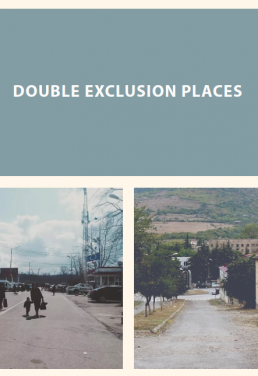საერთო ცხელი ხაზი +995 577 07 05 63


While discussing the systematic human rights violations in conflict regions, the situation of Gali and Akhalgori residents, who live in the reality of double exclusion due to the discriminatory policies of de facto administrations and neglect from the Georgian government, requires special attention. Unfortunately, given the limited human rights monitoring in Abkhazia and South Ossetia/Tskhinvali region and the lack of access of international and civil actors, the knowledge about the human rights situation in these regions is weak and fragmented. This knowledge is mainly based on research conducted at different times, materials and information disseminated by the media, data collected by state agencies, however, due to the limitation of physical access, all these sources require additional validation.
The objective of the research is to contribute informational and knowledge vacuum and to comprehensively describe the existing human rights and social situation in Gali and Akhalgori. The research covers issues such as: the infrastructure of these districts, the legal status of the residents of the local de-facto system and challenges related to documentation, movement to the Georgia-controlled territory and access to the services and programs available there; Right to education, right to health, political participation and representation in a de facto administration system, economic situation and employment, property rights, human rights situation of women, security, civil society and international engagement, freedom of expression, inter-community relations, access to information, cultural rights and freedom of religion.
The analysis presented in the report is based on the information provided by local researchers, which they obtained through interviews with the residents and visits to the villages of Gali and Akhalgori districts, as well as the analysis of existing studies, reports, and public information.
The analysis of the materials presented in the report reveals that the protracted conflict has serious consequences vis-à-vis the people living here and their rights are continuously violated in several directions, such as freedom of movement, freedom of expression, security, and other fundamental civil and political rights. In addition, the socio-economic rights of Gali and Akhalgori residents, the right to receive education in their native language, access to quality health care and social services are systematically violated. Over the years, the restriction of these rights takes the form of non-recognition, ignorance, and harassment, which is due to the vague and contradictory perceptions and place of ethnic Georgians in local nationalisms and de facto political systems. Residents of Akhalgori and Gali are actively involved in the services and political processes offered by the state of Georgia, and arbitrary restrictions on movement periodically impose severe humanitarian crises in these regions. This ambiguity and vulnerability have a heavy impact on the social situation of the local population and leads to the new types of crises and frustrations. The systematic practice of non-recognition and rights violation, aggravated by the difficult socio-economic background, often forces the locals to leave their homes and accept the harsh reality of displacement. Research shows that the number of children in local schools and kindergartens is decreasing from year to year in both regions, especially in Akhalgori.
In addition, complex bureaucratic processes in local de facto systems, often based on nepotism and corruption, further aggravate the already difficult situation of locals, and expose them to arbitrary governance and treatment practices.
The residents of Gali and Akhalgori unanimously point out that their interests and needs are not seen by the de facto administrations. However, neither de jure government of Georgia sees these concerns. The central government does not foster projects and initiatives specifically focused on them, which, beyond the status of citizens of Georgia, would be manifested in additional positive measures and approaches. Today, the same programs are provided to the population of Gali and Akhalgori in several policy directions (with minor exceptions), as to the rest of the citizens of Georgia, and the state does not properly conceptualize the multi-layered challenges related to the protracted conflicts and non-recognition. The harsh reality of ethnic Georgians in de facto systems is not sufficiently compensated and protected in the policies of the Georgian government, which makes them feel abandoned by Tbilisi. According to the locals, their role in the process of conflict transformation is not adequately seen by the Georgian authorities, which is again related to the problem of their recognition.
At the end of the report, recommendations are enlisted for the Georgian authorities and international actors concerning the measures they need to take to improve the complex human rights and social situation in Gali and Akhalgori.
The website accessibility instruction